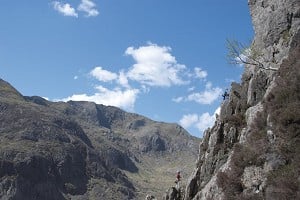
Other articles in this series are Sheffield by Adam Long, Fort William by Dave MacLeod and Catalunya by Pete O'Donovan.
Turn the clock back twenty years and the North Wales climbing scene was a raw-edged, drug heavy mix of designer danger and dole-funded madness. The local communities were poverty stricken, with unemployment levels sky high.
It was a perfect cultural bolt hole for wayward climbers and general drop outs. Now transformed by the economic stability of the nineties, a new North Wales has been born, emerging in to the twenty first century with a perfect cocktail of the real-world grit of heavy industry and the first world idyll of a tourism based economy. With superb climbing on the doorstep, no traffic to clog the winding country roads, and a mixture of both beautiful and basic housing, North Wales could turn in to a modern mountain paradise.
Britain's shift to a Blackberry wielding, Starbucks drinking, finance culture has all but passed North Wales by, and being set back from the cutting edge, both geographically and economically, the smarter local businesses have been able to watch with interest how that city bred culture-shift could be brought to their own down to earth community.
Roll-up cigarettes and fried breakfasts in Pete's Eats have been replaced with off road prams and cappuccinos in the nearby Caban café. The Caban is a local business success, taking everything that modern Britain has embraced (good coffee, healthy food, and a clean environment spring to mind) and fused it with what North Wales has to offer - space. Not being limited by outside space, the Caban grow much of their own food in the grounds of the café (organically of course) and charge accordingly. Have climbers' spending habits changed so much that quality is now revered above quantity?
The Caban is part of a building (the Caban Cyf) that houses several local businesses, and was set up with a European grant. The café is part of the larger organisation, as explained on their website:
"Caban Cyf manages the building and site to provide, amongst other things, affordable workshops & studios for the local business community and to provide free services to our local schools. Any profit from the café will be used to further these objectives."
Businesses do still struggle to set up and to survive, with many of them relying heavily on grant funding. At least the grants seem readily available. North Wales is considered a deprived area and as such a lot of funding is available from Europe.
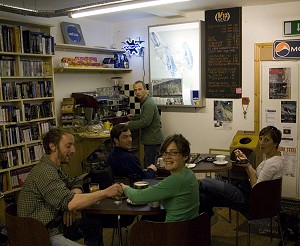
"It's all about the coffee,"
Jim states proudly, turning dials and negotiating steaming nozzles with ease. Jim pours another perfectly layered Latte, and rebuffs a little gentle banter from other Llanberis locals who laugh as I interview him.
"We do a lot of online trade, but during the week in the quiet months, it's mostly local climbers in the shop. We just wanted to make a common meeting place, a social scene."
"It's as much about keeping us, the staff, happy as it is about serving the customers!" He laughs.
That other well known climbing shop, Joe Brown's is also a local business success. Where many other shops have been and gone in the blink of an eye, Joe Brown's has continued to go from strength to strength, recently having a full shop make-over (see UKC Article feature) and maintaining its focal point amongst local climbers.
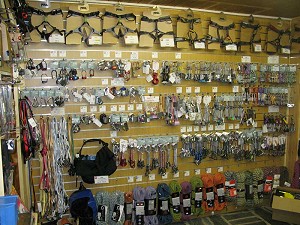
Whilst 500,000 people trudge their way up to the summit of Snowdon each year, filling the Pen y Pas car park before 7am and proving that tourism is the life blood of the national park, simple developments that could bring in more day-trippers are pushed aside or ignored. Many local residents, both climbers and non, swerve around fell walkers on the narrow Llanberis Pass road, whilst wishing the rarely trodden path up the valley would be maintained and publicised, and perhaps made in to an official right of way. Equally the Padarn lake has a family friendly path on one side, and would make a fantastic circular walk, but linking this existing path with the currently out of bounds area owned by the local steam railway, to make a short, flat picturesque circular walk, seems beyond the grasp of local planners and organisations. When the area is hindered trying to capitalise on what already exists, it's no wonder that some forward-thinking businesses run in to problems when they try and make plans for development. Several local climbing businesses have had designs on up-scaling and moving to an unused industrial site just outside Llanberis. They haven't had any luck.
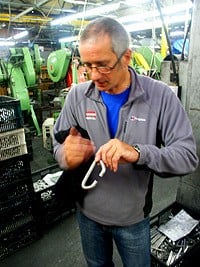
On a more positive note, of all the local climbing businesses, perhaps DMM is the biggest success story. With their factory and offices all based in Llanberis, DMM are the second largest employer in the area, taking both climbing experts from all over the country to work as designers and sales reps, to employing local engineers and draughtsmen to work on the factory floor – putting together the carabiners and equipment that make our sport possible. Resisting the temptation to move production to China has been easy according to Chris Rowlands, Brand Manager:
"Our quality system has developed over the years to ensure we provide the end user with the product they have come to expect, time and time again. Made in Wales since 1981 is a statement we are incredibly proud of, and with good reason; keeping production in house has meant we have built up a pool of expertise and experience second to none in this industry, from design to production, so why throw all that away?"
You can read more about the history of DMM here: DMM Website
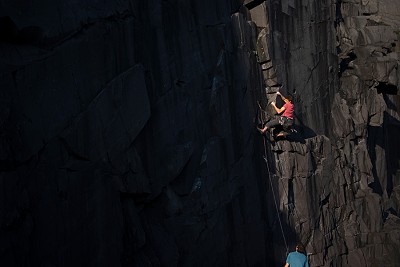
Local climber and fell runner Noel Crane works at Ysbyty Gwynedd as an Research Scientist, and explains the differences between a small rural hospital and the more high-flying city teaching hospitals:
"The biggest difference is clearly the fact that you can get out after work and go climbing! The serious answer would be that the big teaching hospitals do more research. That's not to say that YG doesn't do anything interesting, we do a lot of very high tech stuff, it just means that there isn't the volume of job opportunities, we don't employ as many people. I'm very fortunate to have my position."
Bangor university is well regarded for its marine and environmental departments, covering a wide range of courses such as Ocean Science, Marine Biology and Coastal Geography.
Martin Baker - Bangor Uni Student
Martin Baker is a final year Geography student at Bangor and has lived in the town for three years;
"It's a very strange place, the locals like to remind you it's a city but really it is only a small town. It has got a basic selection of shops, some of the large chain clothes shops and a fair few independent shops, unfortunately it is lacking a lot of the basic high street shops most people are used to and has almost no leisure facilities like a Cinema or a Bowling alley."
"The night life is crap, there are currently 3 venues. The student union bar (Academi) and the night club (Time) with its expensive drinks and crap music. It isn't unknown for the Student Union to have less then 50 people in at 1 o'clock on a Friday or Saturday night. In fact I would go as far as saying it happens regularly..."
"The other option: "Occy" The Octagon, is a small night club that is probably best described as a dive, but is definitely the place to go when drunk and in the mood for pulling some moves on the dance floor. It generally makes a pretty decent night out, although fills up and gets very busy."
"If you are used to living in a big town or city then Bangor will be a big shock and it is easy to feel a little isolated from the rest of the world."
I asked Martin why he chose Bangor University, and if he had the time again, would he go somewhere else?
"When people are considering where to go to Uni, I think they need to really consider why they are going to Uni. I wanted an enjoyable course in a good location that avoided a 3.5 hour round journey to the nearest crag, mountain or white water.
But I now think choosing a university purely because of it's location is a mistake. There is a lot more to uni than education; and the location and facilities is a major consideration (especially if you are an avid climber) but ultimately the purpose of uni is getting a degree. I haven't really enjoyed my degree but that does give me the perfect excuse to go and do a Masters and avoid getting a job for another year!"
Martin lives in Bangor itself, in one of the many student-houses with a ten minute walk to uni, but most climbers move somewhere closer to Llanberis. Architecturally, the area surrounding Llanberis is diverse, with buildings ranging from chocolate-box 18th Century Welsh longhouses, complete with crogloft sleeping areas and 4ft high front doors, through to super-budget 1960's council housing, hastily thrown up after the collapse of the slate industry as North Wales went in to a micro-economic meltdown.
This mixture keeps housing at a realistic price level, but North Wales, as rural and edgy as it is, hasn't been completely immune to the housing bubble. Prices have swollen, but when compared to parts of Southern England, still seem relatively sane.

Owen Samuel
Their house is a three storey, four bedroom terrace, with a large yard and a large garden shed. It cost them £122,000 six months ago.
"We mainly moved here for my work" explained Roccio, "I work for about 6 months of the year in North Wales, mainly at Plas y Brenin. The rest of my work is in Scotland in winter."
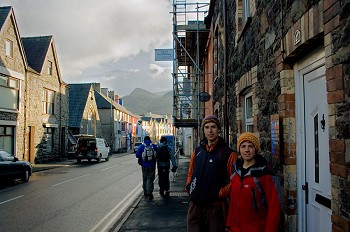
"Only about 5% of my work is in North Wales, I mainly work in the Alps, Canada, places like that. I would love to do more work in Wales though. The main difference between Windermere and Llanberis is that Windermere has embraced tourism. I guess it is kind of good in a way, it keeps the house prices lower here."
"It's bizarre it's so quiet here compared to the Lakes" commented Roccio, "There are more attractions in Llanberis than in Windermere, but less tourists. I'm not complaining though!"
Owen and Roccio chose to live in Llanberis for numerous reasons, including the thriving climbing scene. They looked at several villages and chose Llanberis, mainly for the close to hand amenities.
"Before the hardware store closed down you could buy everything you need right here in Llanberis. There was no need to drive in to Bangor all the time. The only thing that Windermere has over Llanberis is a railway station."
- You can read more about Owen and Roccio on their website: Ibex Guides
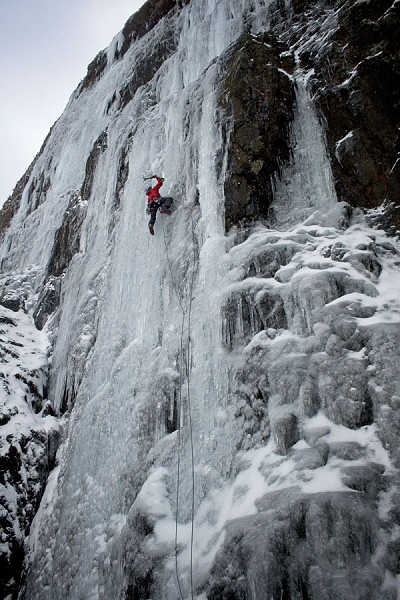
For many of the local climbers, the one thing that keeps them in the area (it can't be the weather – the mountain villages of Snowdonia can enjoy less than 40 sunny days in a bad year) is the local social scene. Although night spots are limited, there are a few hidden and not so hidden gems offering everything from a traditional pub meal next to an open fire, to shirts-off-techno-mayhem with some of Britain's best DJ's.
The one venue that seems to have capitalised on the local climbing scene is the Gallt y Glyn, with its infamous Pizza & Pint nights. A small hotel-come-bar on the outskirts of Llanberis, week-in, week-out the place is filled to the rafters with chalky fingered pizza eaters, all discussing the coming weekend's weather forecast.
Traditional pubs can be a bit of a let down, but keeping ahead of the game is the ever popular Glytwrog in nearby Llanrug. This hidden gem serves great beer and food in a friendly atmosphere, and is right on the way to the Beacon Climbing Wall, perfect.
For those looking for a wild night out, the Hendre Hall near Bangor hosts DJ nights, with music from all genres – House, Drum & Bass, Techno, Dub and various things that I don't even know how to describe. The venue is superb, with ample parking, a great traditional barn set-up, sometimes topped off with roaring open fires and a kind of Gothic or medieval feeling which can make for a great night out. Bangor itself has all the usual student pubs and bad small town clubs, plus a few reasonable restaurants and cafés.
Local climbing super-stars are aplenty, ranging from the older generation, including the legendary Joe Brown, who is more often spotted in Spar than on the crags these days, a few hot-shots from the eighties and nineties, such as the ever upside down George Smith – usually seen driving toward Gogarth with a mug of tea in his hand, down to a group of well known younger trad climbers who have settled in the area – such as Pete Robins, an ocean scientist at Bangor University.
And for those climbing at a more moderate level, there is plenty of rock, lots of active and willing partners and a great community spirit that really makes North Wales a very special place to live.
There's convenient cragging from the Slate to the Llanberis Pass, ideal for those after work hits. If the weather is good you can get up high on to Lliwedd or Cloggy. If you like avoiding the crowds, there's always the Lleyn (pictured below). North Wales - heaven on earth?
North Wales / Llanberis
|
Any Rock? Oh yes! You want rock? You've got it: Rockfax Guidebooks:North Wales Climbs 2023North Wales Climbs spans the major mountain crags from Llanberis Pass, to Cloggy; and from Ogwen to the Carneddau. It also includes the Llanberis... Snowdonia Mountain Walks and Scrambles - Mark Reeves 2020All the best mountain walks and scrambles in and around the Snowdonia area. The coverage is done in full Rockfax style with big overview photos,... North Wales Slate 2018A full guide to North Wales Slate covering the amazing quarries near Llanberis famous for their technical run-out slabs and, more recently, for the...North Wales Winter 2016North Wales Winter covers the best and most reliable venues for winter climbing in North Wales including the classic gullies of the Trinity Face and...Other guidebooks:
Most Popular Climbs:One Step in the Clouds VS 4c Hope VD Grooved Arête HVD 4a Seamstress VS 4c Crackstone Rib S 4a The North Ridge (Summer) Grade-1 Christmas Curry S 4a The area is well served with climbing walls:
Llanberis Climbing Shops: |
Night Life?
Job Opportunities? I'd recommend going in to Pete's Eats and looking on the notice board! For a list of climbing businesses, try:
Estate Agents? |
- SKILLS: Building Fast Belays When Multipitch Sport Climbing 9 Nov, 2016
- SKILLS: Abseil Knots Explained 2 Oct, 2016
- FEATURE: Colm Shannon's Deserted DWS Heaven - Irish West Coast 7 Aug, 2016
- SKILLS: Acclimatising for the European Alps 5 Jun, 2016
- Terra Unfirma! Adventures on the Lleyn Peninsula 1 Jun, 2016
- VIDEO: Fiesta De Los Biceps 8 May, 2016
- REVIEW: Evolv Shaman 2016 18 Mar, 2016
- REVIEW: Doug Scott - Up and About 2 Feb, 2016
- ARTICLE: 12 Climbing Adventures That Won't Break The Bank 26 Jan, 2016
- DESTINATION GUIDE: 10 Routes to Climb in Chamonix in Winter 20 Jan, 2016

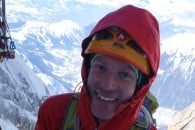

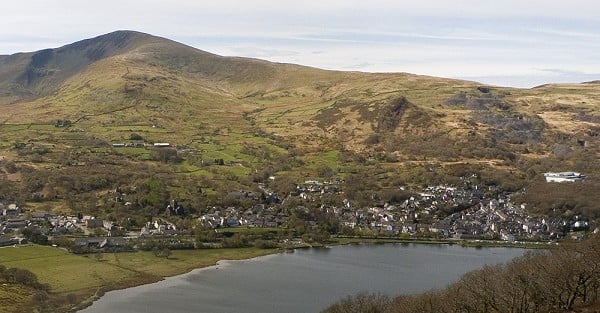
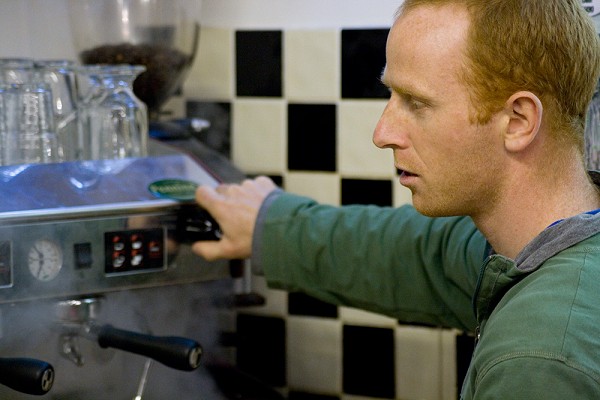
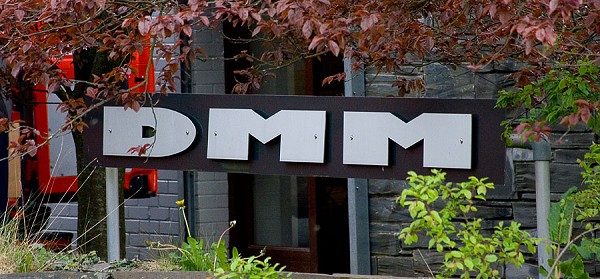
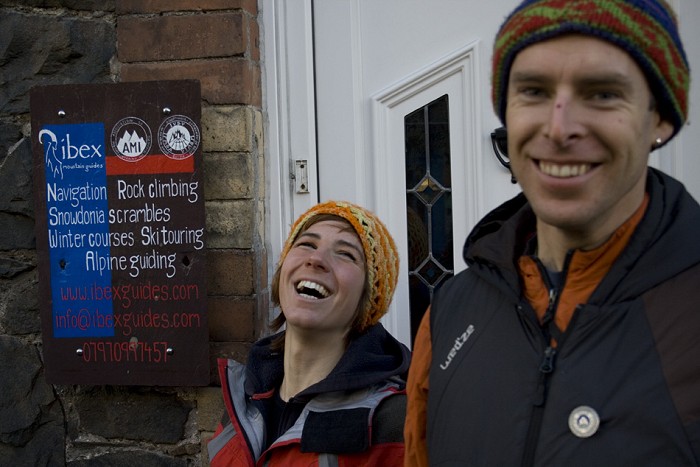
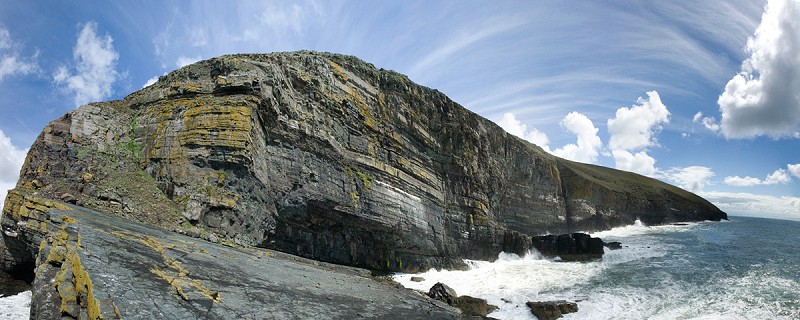
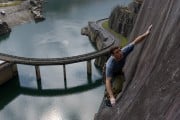
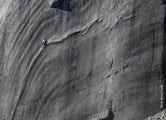


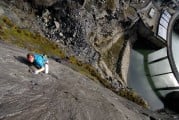



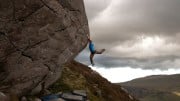




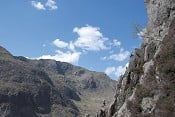
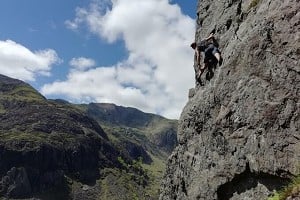
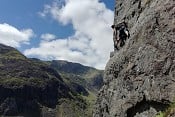
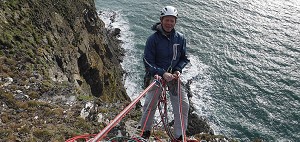









Comments